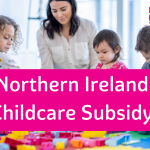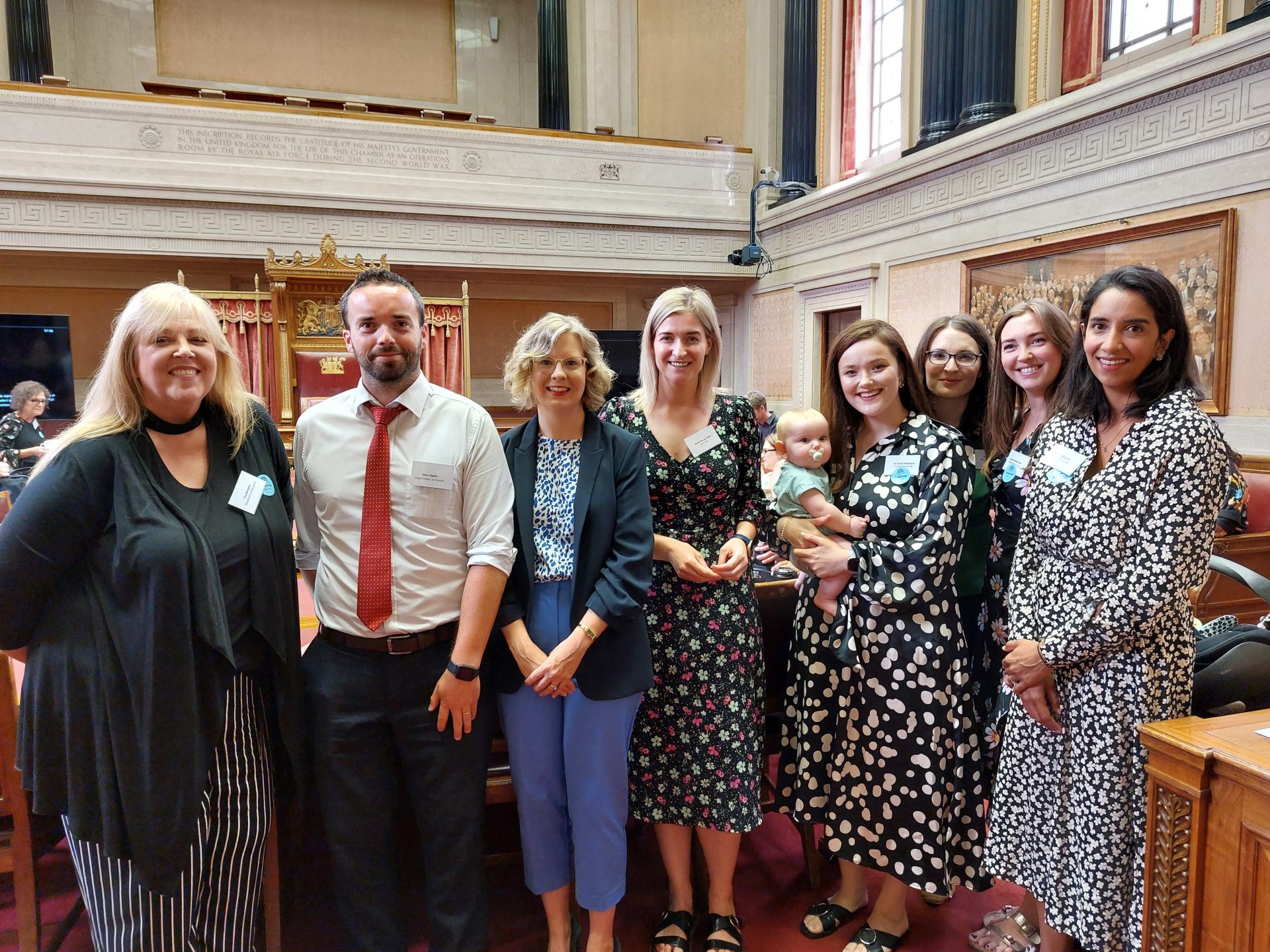Department of Education publishes independent review of childcare in Northern Ireland
Review of latest NI childcare report
In 2022, the Department of Education in Northern Ireland (DE) commissioned RSM to undertake an independent review of childcare services to inform the development of the Executive’s long-awaited new Early Learning and Childcare Strategy. The aim of the review was to provide a current, comprehensive and evidence-based assessment of the childcare sector in Northern Ireland. Following desk research, surveys, focus groups and interviews with parents, childcare providers and stakeholders, RSM delivered their findings to DE in February 2023, who published the report on Thursday 22 June 2023.
The report references a wealth of existing evidence including the Northern Ireland Childcare Survey research series published by Employers For Childcare which, since 2010, has been tracking the views and experiences of parents and childcare providers, analysing data from more than 50,000 responses and charting changes and developments over time.
Key findings
The report reinforces the clear and existing evidence of a childcare sector that is at crisis point and provision that families find unaffordable.
This evidence is collated under the following themes:
- Childcare supply and demand
- Accessibility and inclusion
- Workforce challenges
- Financial health of providers
- Financial support and affordability for parents
- Barriers to employment.
Childcare providers are reporting a significant increase in staff vacancies, up 165% on the previous year, which are increasingly hard to fill, impacting on the capacity of settings. For many the financial outlook is bleak, costs are rising, with 39% reporting their costs had increased ‘a lot’ in the last three years. Providers expressed deep concerns about the future, including a fluctuating demand for childcare and difficulty of generating sufficient revenue to cover their running costs. Fewer than one in five providers reporting making a profit that they can reinvest, with more than a quarter making a loss. Some of those interviewed reported that they have taken on debt to try to stay afloat. Around half of providers are planning to increase their fees, but are doing so reluctantly, mindful of the challenges parents face in affording the childcare they need.
For those working in the sector, their key role in supporting the early education and care of children is characterised by low pay that is a key factor in the recruitment and retention challenges facing providers.
For parents, the key issue highlighted in the report is the affordability of childcare with 63% of parents reported that their spending on formal childcare had increased over the last year. A significant proportion of parents reported that cost had prevented them from accessing formal childcare. The survey for parents found that average monthly spend on formal childcare is £542 – although some are paying much more. It is important to note that this figure includes parents paying for relatively few hours of childcare for older children, on a part-time basis, as well as those paying for full-time childcare. Even so, this figure seems very low based on Employers For Childcare’s research with parents through the Northern Ireland Childcare Survey and through the day-to-day work of our Family Benefits Advice Service
Parents reported that the cost of formal childcare is the main driver for those who have chosen to use informal childcare (such as family and friends) and most parents said they would use more formal childcare if it was free or more affordable. This is important information for the Department of Education as work progresses on the new Childcare Strategy to ensure that there is capacity within the system to meet the increased level of demand for quality childcare that we can anticipate as a result of measures to improve affordability.
In findings that echo those of the Northern Ireland Childcare Survey 2021, the affordability of childcare is recognised as a barrier to employment. Around half of parents surveyed said that difficulty accessing formal childcare had prevented them or their partner from increasing their hours of work, while almost a third said it had prevented them from working full-time. This reflects the wider importance of recognising childcare as essential economic and social infrastructure – with a key role to play in enabling parents to work, reducing levels of poverty, addressing gender inequality, increasing income levels and promoting healthy child development for success later in life.
The report identifies that the affordability of childcare is even more of a struggle for those families with the youngest children, very low-income households, lone parent households, families where a parent or child has a disability or additional needs, and those from minority ethnic backgrounds.
It is important to note that the research was carried out in 2022. Through our daily work directly with parents and with childcare providers we know that the situation has worsened even further since then.
Issues shaping the prevailing landscape
The report identifies a range of issues that are impacting on the current situation for providers and for parents, as well as more broadly on the environment within which the new Early Learning and Childcare Strategy is being developed.
Changes in working patterns have impacted on levels of demand for childcare services for older children. Continuing high levels of inflation are still pushing up prices for many of the goods and services that childcare providers rely on – from food and energy costs to transport and insurance. The challenging economic conditions have been compounded by a Northern Ireland Budget for 2023/24 set by the Northern Ireland Secretary of State that fails to adequately deliver the funding needed to deliver even current essential services for families and for the childcare sector, much less deliver the ambitious additional investment that is required. This comes as a consequence of the ongoing political landscape in Northern Ireland, which has also resulted in delays to the development of the new Childcare Strategy and are contributing to the crisis facing parents and childcare providers.
Fundamentally, there is a strong perception that childcare is not even close to being valued in the way that it needs to be. A historical lack of investment in the sector and its workforce are seen as indicative of the lack of value attached to childcare. While the report found appreciation for how the sector was supported during the Covid-19 pandemic, it also paints a picture of deep frustration at the continued absence of a Childcare Strategy and any further sector wide support.
The report reflects that the childcare sector in the UK remains amongst the most expensive in the world, with UK spend on childcare – at just 0.07% of GDP – the second least of all OECD countries. And for families in Northern Ireland who are paying for childcare, developments since the finalisation of this report in February – specifically the Chancellor’s childcare announcements in the Spring Budget further highlighted the absence of parental support schemes that are available elsewhere in the UK.
Areas identified for improvement
The report finishes by identifying conclusions on nine potential areas for improvement:
- Centralised childcare data for parents
- Alternative models of wrap-around care for school aged children
- Professionalising the sector
- Pay and conditions
- Access to multidisciplinary support
- More training on a range of needs
- More work-based learning
- Centralised register for childcare professionals
- Centralised information on financial support for providers.
While there are some positive and evidence-based recommendations, there are also questions raised. For example, in considering alternative models of wrap-around care for school aged children how will this impact on the sustainability of existing school aged childcare provision? There is also no mention of the Review of the Minimum Standards or consideration of the recommendations across the report referring to the Standards, such as in relation to ratios. Perhaps most surprisingly, it is difficult at a glance to see any recommendation specifically relating to the affordability of childcare for all families, and reducing their costs other than a vague reference to “targeted investment” in the sector. While this is perhaps more for the Department to address, than for their consultants who produced the report, there is a lack of detail on how this “targeting investment” might be developed and what it might look like to have the best possible impact for children, parents and the childcare sector.
What is missing from the report?
There are a number of areas where we would have expected to see further detail and evidence within the report based on the original terms of reference and the information that is needed to support the Department of Education in its development work on the Strategy including a detailed exploration of what does quality early learning and childcare look like and what it costs to deliver a high quality childcare place.
We also consider that the report lacks a focus on the children who need to be at the heart of the Childcare Strategy. What are the benefits to children and how can the impact of quality childcare be measured and quantified? How can childcare be used as a means of tackling disadvantage?
We appreciate however that this report is one piece of the jigsaw comprising the wealth of information that the Department of Education has, from years of research, extensive engagement with the sector, parents and wider stakeholders and learning from other jurisdictions and countries – all of which now needs to be put to use in finalising the costed options that are the next step on the urgent journey towards the new Early Learning and Childcare Strategy.
Conclusion
The new Early Learning and Childcare Strategy for Northern Ireland is already long-overdue and urgently needed. Now that this report has been published, and another milestone passed, we simply can’t see any further delays to the development, publication and implementation of the Strategy and the major investment that is needed in childcare in Northern Ireland. Daily we are speaking to parents and to childcare providers who express not only their frustration – but their deep worry and anxiety – as a result of the crisis facing the sector and those who rely on it. Families and childcare providers are feeling very much left behind other parts of the UK and Ireland, seeing an ever-widening gap between support available in Northern Ireland and elsewhere.
This is a critical time and we need to maintain momentum, building on all the work of the last few years, to finally turn planning into progress, and progress into policy – policy that really delivers for families, childcare providers and our economy and society as a whole.






